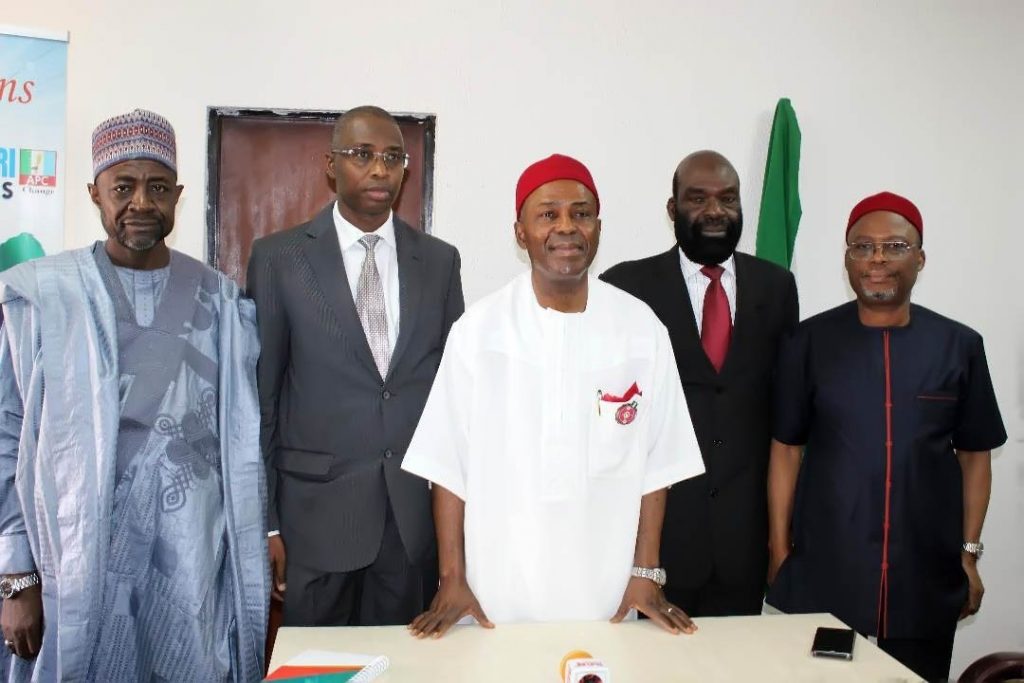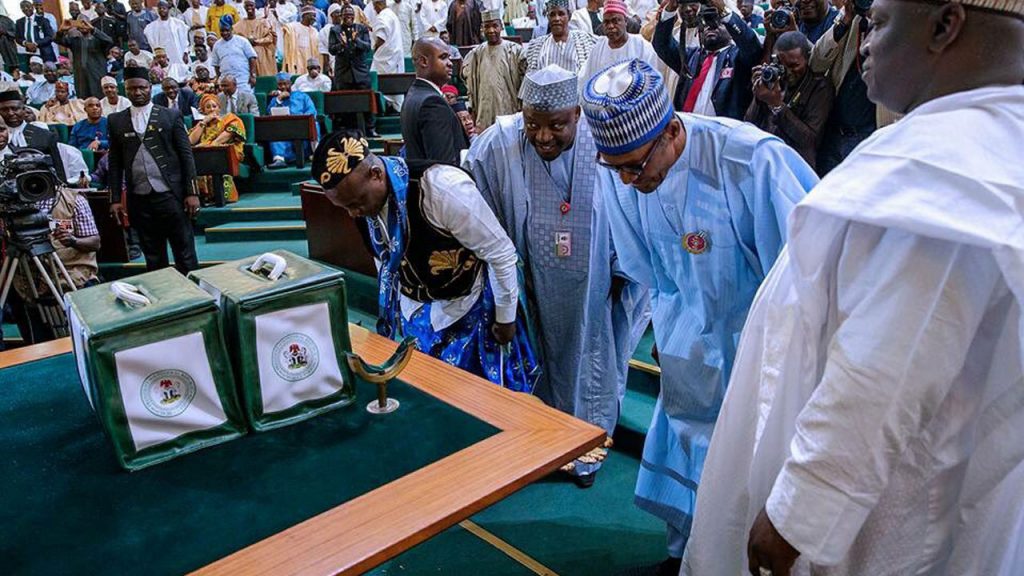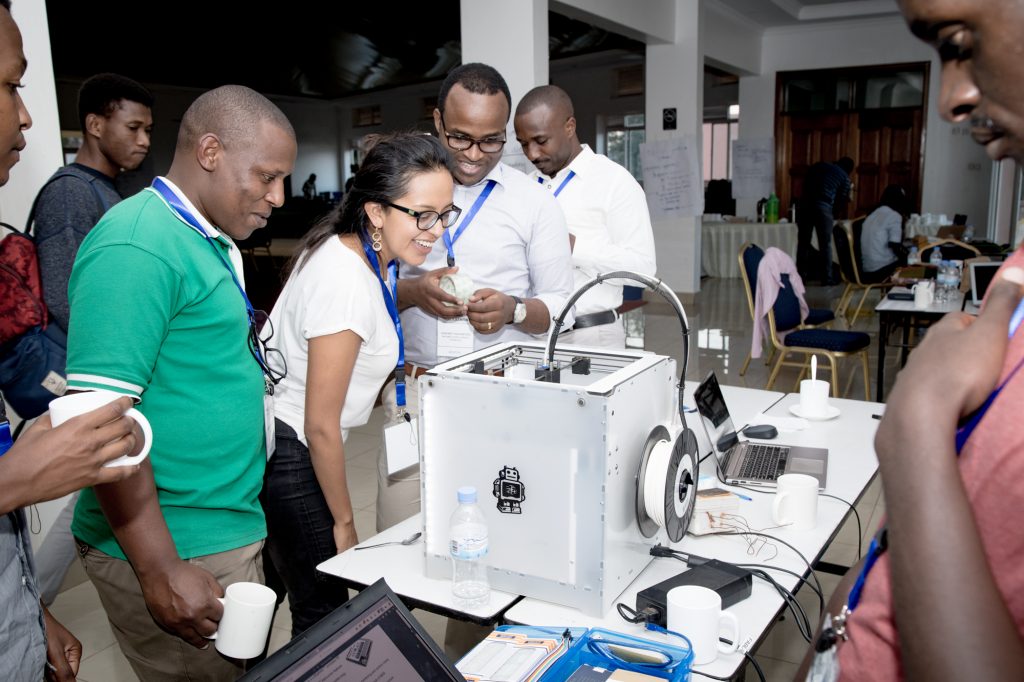Science and Technology is the future, and any country without a solid plan for it has a solid plan to remain in the past. This was buttressed in a speech delivered by the minister of science and technology, Dr Ogbonnaya Onu.
According to him “The federal ministry of science and technology has a very important role to play in re-directing our nation to the path of true greatness.”
In that speech, the minister went on to highlight how technological innovations play central roles in activities of all sectors of the economy. He acknowledged that the aim of his ministry and indeed the country right now is to catch up with more technologically advanced countries.


He proposed ‘hard work’ as the right vehicle towards achieving that aim. The problem however is, Dr Ogbonnaya’s ministry doesn’t appear to take its own advice.
The Budget Problem
The ministry’s problems began with its budget proposal for 2018 as contained in the proposed national budget presented before the National Assembly late last year.
For such an all-important ministry, the total proposed budget of N75.6 Billion could be considered miserly. Especially when compared to the 81.8 Billion proposed for the office of the Secretary General of the federation and the 121 Billion allocated to the office of the National Security Adviser.
But with the over-bloated and indefensible details of the proposal like 1 billion proposed for establishing a science and technology TV station, N56 million for the ‘identification of available bio resources’ and an additional 30m for the ‘identification of new and potential bio resources market,’ the National Assembly saw through the empty shells those proposed ventures were and slashed the already miserly figures by over a 50%.


This left the ministry of science and technology with 32.8 Billion and left Nigerians with huge doubts about a supposedly all-important ministry whose chiefs couldn’t come up with actual projects to execute despite the nation’s overwhelming science and technology needs.
Suffice it to say they ended up unable to defend a proposed budget many people believed was inadequate in the first place.
Aftermath
The best way to show Nigerians that the sum approved for the ministry is too meagre would have been to achieve something tangible with it. Thus one would expect the ministry to be very involved in disruptive and actual innovative tech activities.
But alas, the idea of tech, at least to the ministry of science and technology appears to be intricately connected with traditional skills like road construction, house building, raw materials and other artisanship.
This is well-buttressed in the minister’s speech during the opening of the Nigerian Building and Road Research Institute (NBRRI) complex in Abuja. There the minister lauded the plan to establish Artisan centres teaching young Nigerians how to build houses, a skill the minister says the country would be in a position to export in the near future.


But infrastructure building varies significantly, from country to country. The difference also depends on several factors, critical of which is climate, expertise and legislation. As such it is difficult to see how Nigeria can realistically export such skills.
21st Century Tech Skills
The governments of the more advanced countries Nigeria aims to catch up with are involved in new technologies like green energy, BlockChain, Data Science, Artificial Intelligence, Machine learning etc.
They are also involved in incubating start-ups operating with these new tech skills and funding innovative ideas. These are some of the surest ways of wealth and job creation, creating new markets and skills, youth empowerment and ultimately skill exportation.


Little, if any, of these 21st-century
For a ministry constantly priding itself as dedicated to ‘promoting self-reliance in science, technology and innovation,’ recycling 20th-century skills for the 21st- century youth isn’t exactly an innovation.
The NanoTech Adventure
In February, the ministry announced it is delving into nanotechnology. As is the Nigerian style, a committee was formed to look into it.
Nanotechnology is an all-important aspect of science and tech that deals with substances in their smallest (molecular) forms.
It can be applied
Plus or Minus
Admittedly, the ministry scores some points in certain areas. A good example is its recent partnership with Ukraine on space exploration in which the Ukraine firm proposed to build a satellite production centre in Abuja.
While that appears like a laudable objective on paper, the actual benefits of the partnership are not specifically outlined. According to a press release by the ministry on the matter, the partnership will “help the country build strong economy and create jobs.”


How this will be achieved and what kind of jobs will be created appear to be undetermined.
Another point of note is the recent push by the ministry for the International Atomic Energy Agency (IAEA) to make Nigeria a centre of excellence in nuclear training. Although this looks like a positive stride, it appears to be all talk for now.
Which is probably good because not many Nigerians will agree that the country is ready for atomic energy for obvious reasons. And the ministry hasn’t exactly shown the world that we are.
The ministry might record considerable success in its drive to get Nigerian industrialists to use local raw materials in their productions. Non availability of global standard raw materials on the other hand might militate against such drive and there is no evidence to suggest the ministry has supported the development of such raw materials.
NBTI: The MVP that Isn’t Quite Impressive
The National Board for Technology Incubation (NBTI) is another branch of the ministry that appears to stand out. While there is no record of start-ups the board actually incubated or accelerated in 2018, it did disburse N45 million to unnamed inventors and innovators.
This not-so-impressive performance could be attributed to ‘mismanagement’ and a general ‘loss of focus’. NBTI Branch Chairman, Adolphus Ugwu made that clear enough upon the agency’s commencement of a 3-day warning strike against the reappointment of Mohammed Jibrin as the DG of the board in June.
In Conclusion
The ministry has done a superb job making a lot of noise about capacity building in traditional skills as well as advocating the use of local raw materials.
Yet, asides paper talks, it hasn’t done much to support real disruptive and problem-solving skills that open up new business opportunities and by extension new jobs and new career paths.
With its Science, Technology and Innovation (STI) Expo holding in January 2019, we hope it will offer Nigerians something more.






